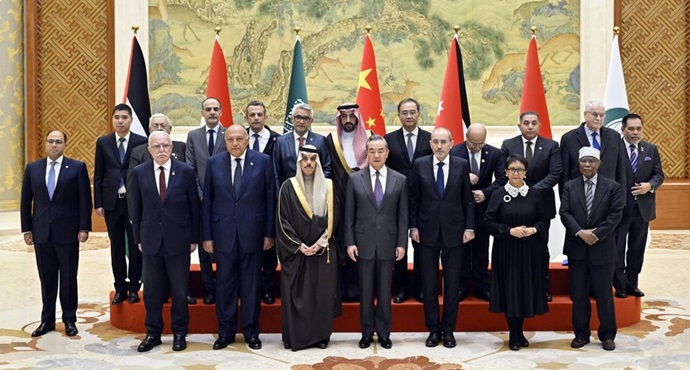
In the context of the Israel-Hamas conflict, China’s growing impact on global events is notable. Its effective mediation in the Iran-Saudi reconciliation demonstrates a disruption in international diplomacy’s traditional power arrangement. China is no longer a bystander in world events. Just recently, China hosted Arab Foreign Ministers (FMs) and the Organization of Islamic Cooperation’s (OIC) FMs. The Muslim world sought China’s role and assistance in resolving the Israel-Palestine conflict. A virtual summit of BRICS was also convened on the same matter. These developments reflect China’s growing role in mediating long-standing conflicts.
The established power axis of the world, the US, has favoredIsrael all along and hence cannot play a mediator or peace facilitator. The allyship of the US with Israel has compromised its position as a fair and unbiased arbitrator in the global arena.
As global dynamics evolve, the erosion of credibility in the ongoing conflict may translate into other geopolitical theatres as well, significantly reducing the US’s efficacy in diplomacy.
China proved itself as a prominent actor in international mediation when it brokered a reconciliation between Iran and Saudi Arabia, earlier this year. This new role that China assumed stems from its wider objectives in supporting Middle Eastern stability and collaboration. China, as a major energy user, relies significantly on this region’s oil imports. Moreover, a secure and stable Middle East is critical to China’s Belt and Road Initiative.
The Chinese approach to mediation in the Iran-Saudi dispute was marked by patience, tenacity, and an emphasis on shared interests. In contrast to Western mediators, who were frequently accused of bias towards liberal values, China positioned itself as a neutral facilitator; emphasizing its non-interference policy and readiness to listen to all parties. If China succeeds in facilitating a diplomatic resolution to the Israel-Hamas conflict and a permanent settlement to the Israel-Palestine issue, it will open another window into the fast-changing global power relations.
For the Muslim countries specifically, China will be the new face of an order that does not demonize them.
China’s concerted attempts to build a soft image in the Muslim world include economic, diplomatic, and cultural initiatives. In sharp contrast, the US has largely been a pioneer and amplifier of Islamophobia. So while the US was busy wreaking havoc on Muslim lands in the name of fighting “terror,” China increasingly came up to forge economic ties. Today, China’s soft power projection in the Muslim world has the potential to erode the US’s traditional influence in these countries.
If China manages to bring about a peace plan for Israel and Palestine, it will shift the power balance significantly. This is a conflict that has sent shockwaves across the world with Israel blindly bombing Gaza. This conflict keeps the Middle East volatile endlessly. Its resolution will certainly be a global event of significance.


















Leave a Reply